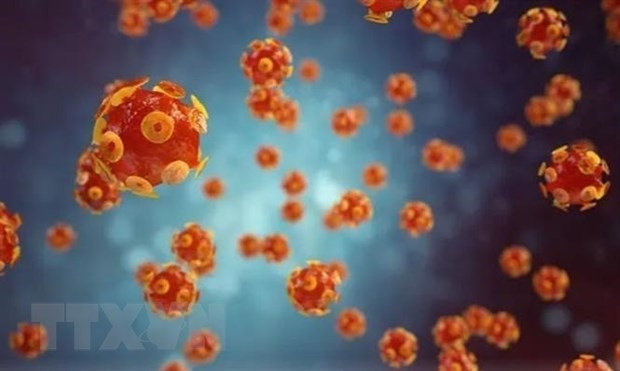On July 25, British researchers announced a breakthrough in the study of mysterious cases of hepatitis in children.

Simulated image of the virus that causes hepatitis. Photo: Getty Images/TTXVN
Researchers find severe illness linked to co-infection with two common viruses.
As of October 2021, the World Health Organization (WHO) has recorded at least 1,010 cases of mysterious hepatitis, including 46 cases requiring liver transplants and 22 deaths. Previous hypotheses focused on a sudden increase in adenovirus infections among young children with mysterious hepatitis.
However, in two new studies conducted independently and simultaneously in Scotland and London, scientists discovered that another virus called AAV2 (adeno-associated virus 2) played an important role and was present in 96% of the patients tested.
Normally AAV2 is thought to be non-pathogenic and cannot replicate on its own without the help of another virus.
Two research teams examined patients with hepatitis and those without the disease. They found that AAV2 was predominantly present in those with the disease.
Both studies concluded that AAV2 infection concurrent with an adenovirus, or sometimes HHV6 herpes virus infection, was most likely the cause of this mysterious hepatitis.
Professor of infectious diseases Emma Thomson, who works at the University of Glasgow and led the research in Scotland, confirmed: "The presence of AAV2 is linked to the mysterious hepatitis in children."
However, she noted that it is not yet known whether AAV2 is the direct cause of the disease or simply a biomarker that adenovirus infection is the cause of the disease and is more difficult to detect.
In addition, the two separate studies above both ruled out the possibility that SARS-CoV-2 infection was the direct cause of the mysterious hepatitis in children. The study confirmed that no SARS-CoV-2 virus was found in the livers of the patients.
The Scottish study found that more than 60% of patients had antibodies to SARS-CoV-2, similar to the rate in children at the time. It is unclear why the recent spike in hepatitis cases occurred, but both groups highlighted the possibility that COVID-19 lockdowns may have contributed to the immunosuppression of young children.
Both studies have been posted online and are awaiting peer review before publication in peer-reviewed journals.
According to VNA